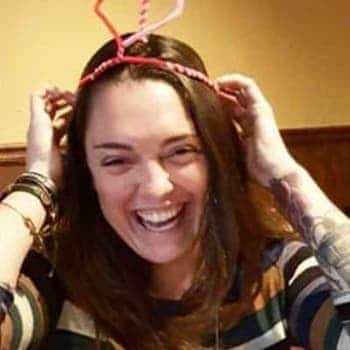Giving up drinking and drug use doesn’t mean the good times are over. Many young people decide early on that sobriety is the best option for their life.
If you would have told me that I would become sober at the age of 23, I would have laughed in your face. I would have laughed because I was in denial of the things that I had a destructive relationship with. It’s important that we acknowledge what I am about to say: You do not have to have decades of drinking and drugging under your belt to own up to the fact that you struggle with moderation.
You do not have tohit rock bottomto realize that you need to change your life. You do not need an arrest record to let you know that you make questionable life choices. You do NOT have to meet an age requirement to recognize whensobrietyis in your best interest.
Addiction Doesn’t Discriminate
Within the sober community, I have come acrosspeople of all ageswith all kinds of stories. That is the thing about addiction: It does not care how old you are; all it cares about is whether you keep giving it what it feeds off of.
Regardless of what you believe when it comes to addiction or how an addiction comes about in the first place, the fact of the matter is that we should never belittle someone else’s struggle. There is not a checklist of what one must meet to become sober. It is a personal choice and something that should be celebrated, no matter what age you decide to live your best life.
Treatment Can Be Life Changing. Reach out today.
Whether you are struggling with addiction, mental health or both, our expert team is here to guide you every step of the way. Don’t wait— reach out today to take the first step toward taking control of your life.
Why are young people who have found sobriety given a hard time about it? This boggles my mind the most. When did it become anyone else’s business when or why a young person may choose to live theirlife in recovery?
Unfortunately, I have met a few people in recovery who have had to defend themselves when it comes to their age. I have been asked on multiple occasions why I got sober after so little time of even being the legal drinking age. I typically choose not to engage in these kinds of conversations, but sometimes I feel compelled to address the ignorance I see in that question and how addiction affects people of all ages.
Addiction Is More Than Substance Use
I like to remind others that drinking is not the only factor. When you suffer from addiction, you usually struggle to understand when enough is enough in almost all aspects of life. I may not have understood addiction when I started doing drugs at 14, but it didn’t take me that long to realize that drugs were more than just “recreational.” For me, they were a means of escape.
As far as my decision to get sober at 23 goes, I am grateful to have made this choice so early. Too many people suffer for far too long and I wish all of those who battle addiction would come to terms with it much sooner. Addiction is a lifelong battle, but it does not need to be one that we continue to lose.
Now, at the age of 25 and with two years of recovery under my belt, I no longer feel the need to defend sobriety at my age, because quite frankly, that isn’t the point. The point of sobriety is to live your best life. Regardless of how young you were or how young you are, what’s important is that you do what is best for YOU. If sobriety is what’s best, then by all means, enjoy just that.








